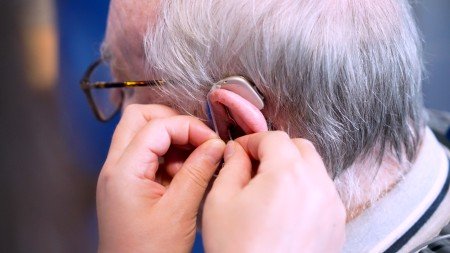
Audiology involves diagnosis and treatment of hearing, tinnitus and balance conditions. Different roles require different skill sets.
As an Audiologist you will:
-
Have significant direct patient contact with patients of all ages.
-
Use a number of audiological tests to diagnose hearing, tinnitus and balance conditions
-
Counsel patients regarding their hearing and balance condition and provide digital hearing aids/ exercises to support treatment.
-
Conduct new-born hearing screening.
Career progression
There are many different opportunities to progress in this profession, some of these are as below:
Career pathway
-
Newborn hearing screener
-
Assistant/ Associate Audiologist
-
Hearing Aid Audiologist
-
Paediatric Audiologist
-
Healthcare Science Practitioner
-
Clinical Scientist
With experience and training you may be able to develop your career further to specialise, manage, research or teach.
Qualities to work in Audiology
-
Good communication skills
-
Think logically
-
Have an interest in science and technology
-
Good hand/eye coordination
-
Pay great attention to detail
-
Be able to work as part of a team
Entry Requirements
-
Entry- level roles like Newborn Hearing Screener or Assistant Audiologist typically require good literacy and numeracy skills; GCSEs are often expected, and qualifications liked NNEB or BTEC in childcare can be beneficial.
-
To become an Audiologist, you’ll need 2-3 A-levels (or equivalent) and must complete an accredited Degree in BSc Healthcare Science (Audiology). Alternatively, you can complete master’s degree in Audiology if you already have a degree in a related healthcare field. There are also opportunities to become an audiologist through an apprenticeship degree (BSc Healthcare Science Audiology Degree Apprenticeship).
-
Graduates with a 1st or 2:1 degree can enter the NHS Scientist Training Programme (specialising in neurosensory sciences), leading to clinical Scientist roles in Audiology.
